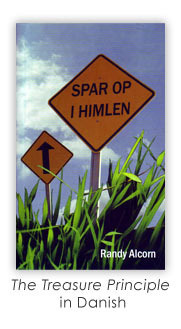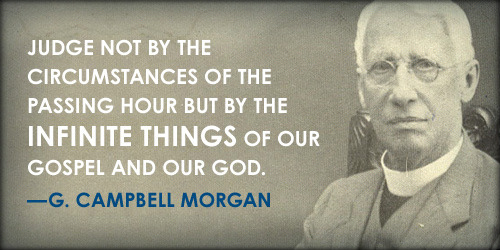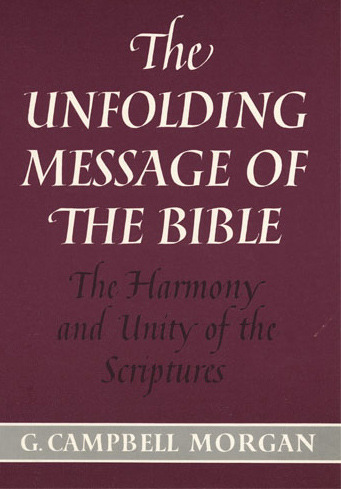Randy Alcorn's Blog, page 198
May 10, 2013
Happy Mother’s Day to My Wife Nanci and Our Daughters Karina and Angie
In this video, I share some thoughts about my daughters:
 I am deeply grateful to the Lord for my wife Nanci and for our daughters Karina and Angie! Nanci is a great mom, and a fantastic grandma. I love the way she cares for our grown daughters, giving them space, but always being interested in their lives, their husbands (both conveniently named Dan) and their children.
I am deeply grateful to the Lord for my wife Nanci and for our daughters Karina and Angie! Nanci is a great mom, and a fantastic grandma. I love the way she cares for our grown daughters, giving them space, but always being interested in their lives, their husbands (both conveniently named Dan) and their children.
I love it when our daughter Karina, now living a thousand miles away, calls her just to talk. And when our daughter Angela, two blocks away, drops by for reasons large and small. I love to hear the laughter—and Nanci’s laughter is delightfully contagious and therapeutic.
I look at Karina and Angie now as moms who are in their thirties—the mothers of my grandsons—and I am just delighted to see their hearts for Christ and the ways God has gifted them. I marvel at my daughters’ love and discipline and wisdom, their grace and truth, and the patient ways they pour themselves into our grandchildren. I marvel at them. I always have, and always will.
I watch Karina with Matthew, Jack and David, and the thoughtful way she approaches each day, creatively laying out a schedule for home schooling and field trips and errands. She knows just how to talk to each of her boys, to motivate and train and encourage them.
I watch Angela with Jake and Ty, driving them to their charter school, picking them up and taking them to their afternoon sports, listening to them and helping them problem-solve. I watch Karina and Angela and their husbands reading Bible stories to their children at night, just like I did to them, and praying with them as Nanci and I did.
 This means more to me than I can express, because I grew up in a non-Christian home. I love my Dad, but as a child I heard him come home drunk in the middle of the night, and listened to my parents fight. I have vivid memories, as I lay in bed, of hoping (I didn’t know anything about prayer) that they wouldn’t get a divorce. They’d both been divorced before, so that wasn’t unthinkable. I loved my parents, and had the joy of later leading each of them to Christ.
This means more to me than I can express, because I grew up in a non-Christian home. I love my Dad, but as a child I heard him come home drunk in the middle of the night, and listened to my parents fight. I have vivid memories, as I lay in bed, of hoping (I didn’t know anything about prayer) that they wouldn’t get a divorce. They’d both been divorced before, so that wasn’t unthinkable. I loved my parents, and had the joy of later leading each of them to Christ.
But to see our daughters and their husbands passing on to their children what I didn’t have as a child brings tears to my eyes. To watch our grandchildren growing up in Christ-centered churches where their fathers and mothers are leaders means more to me than most, because as a child, until I was teenager, I knew nothing of Christ or the church.
A while ago Nanci received an email from Karina that made both of us laugh at how life comes full circle (or as they say, what goes around comes around):
Mom,
Matt [eight years old] is paying me back for every well-organized campaign of logical attack I ever made against taking piano lessons as a child. He has his heart set on a point system for chores which will earn him certain prizes, and will not let a day go by without making some very difficult-to-refute points…. The degree to which he is able to drain my mental energy is absolutely amazing. I can't believe how nice you were to me, and patient. At the time, of course, I thought you were totally unreasonable. :) And yet now... I can only hope to receive an email like this from Matt in 25–30 years. :)
Karina
I remember the girls’ childhood years so specifically, and when I look at them I can always see them as they were at the same age our grandchildren are now. Because we’re in close touch with Karina and Angie and their families, it’s like we’re reliving those years again.
I remember going into our girls’ room while they were sleeping and praying over them. Sometimes in the middle of the night, I would get up and come in and quietly pray beside their bedside. When our grandsons spend the night with us, before I go to bed I pray over them as they sleep, just as I did my daughters, often in the same room.
 (A couple years ago Angie told me, “You know, Dad, when you would come into my room in the middle of the night and pray over me, I was often awake. I would pretend I was asleep but I was aware of you praying for me. And I want you to know how much that meant to me and how much that means to me now looking back.”)
(A couple years ago Angie told me, “You know, Dad, when you would come into my room in the middle of the night and pray over me, I was often awake. I would pretend I was asleep but I was aware of you praying for me. And I want you to know how much that meant to me and how much that means to me now looking back.”)
God gave me a wonderful mother, who went to be with Jesus in 1981, ten years after I had the joy of leading her to Christ. (See my tribute to my mom.) God gave me a terrific wife who is also a great mom. And to top it off, God gave us two amazing daughters who are also fantastic moms. I thank God for each of them, none of whom I deserve. And that is the grace of God, isn’t it? To give us in Christ what we don’t deserve.
“For we know the grace of our Lord Jesus Christ, that though he was rich yet for our sakes he became poor, that we through his poverty might become rich” (2 Corinthians 8:9).

Related Resources
Book: Help for Women Under Stress
Blog: A Tribute to My Mother
May 8, 2013
A Joy and a Privilege: Translations of My Books

One of the things I really love getting in the mail is a new translation of one of my books. They’ve been translated now into over 50 different languages. It’s a joy to see what God is doing in other cultures with books that I’ve written.
In this video and the following transcript, I share about some of the translations.
 My book Heaven for Kids is in Korean. And when I first got it, I thought, “Isn’t that cute? They’ve got all these Korean kids on the cover, and this old man with a cane.” And then I realized that the old man with the funny-looking hat and cane is supposed to be me!
My book Heaven for Kids is in Korean. And when I first got it, I thought, “Isn’t that cute? They’ve got all these Korean kids on the cover, and this old man with a cane.” And then I realized that the old man with the funny-looking hat and cane is supposed to be me!
Heaven for Kids in Indonesian has a cover that includes a Disneyland-like castle, a monkey up in a tree, and green children. Puzzled, I sent an email to a friend who is a missionary in Indonesia and a good photographer. I’ve seen his pictures of Indonesian kids before, and none of them were green! So I asked him, “Are kids green in Indonesia? Are these photos you send color corrected or something?”
He said, “Well, not only are they not green, I have no idea why they would portray Indonesian children as green.” But that is just one of the characteristics of another culture.
 Another one I really like is the Danish translation of The Treasure Principle, titled Spar Op I Himlen. What it means is, “Saved up in the Sky.” The idea is, when we invest our treasures in Heaven rather than on Earth as Jesus said, they’re saved up in the sky.
Another one I really like is the Danish translation of The Treasure Principle, titled Spar Op I Himlen. What it means is, “Saved up in the Sky.” The idea is, when we invest our treasures in Heaven rather than on Earth as Jesus said, they’re saved up in the sky.
I was really excited to receive a copy of my Heaven book that has been translated into the Nepali language. Back when I was in Bible college, they talked about Nepal and how there were only something like 15,000 believers in the entire country. And now, there’s one-half million, maybe closer to a million, known believers and they are actually having Christian literature translated into their language. That thrills me and most importantly, I think it thrills the heart of God.
Our ministry received this note from a believer in Nepal:
Just got book of why Pro-Life - ( English) personal I studied ,it’s very useful to my life and my work also need of our Christian community also Our Church youth , I long time ago I am working HIV Ministry , it’s very full to me, at the moment I am spoken some of the Church and youth get-together , I feel your Eternal perspective ministries need our Place in Nepal , also I am praying.
Thank you
 I’ve also been told that the translation of Why ProLife? into Nepali is now in progress. Why ProLife? is a book has been translated into (or is currently being translated) into over 30 languages, which is wonderful because of the potential impact it can have in saving the lives of unborn children. Here’s another response we received about Why ProLife?, this one about the Russian version of the book:
I’ve also been told that the translation of Why ProLife? into Nepali is now in progress. Why ProLife? is a book has been translated into (or is currently being translated) into over 30 languages, which is wonderful because of the potential impact it can have in saving the lives of unborn children. Here’s another response we received about Why ProLife?, this one about the Russian version of the book:
I was especially excited to see the translation of Purity Principle and Why Prolife? into Russian. The Soviet system really aimed to demolish the family, with abortion the only "official" birth control, and I deal with women often here in Kazakhstan who have undergone numerous abortions (especially middle-aged and older women), and are now dealing with the pain of them all. Immorality among the young is as rampant as in the West, with very little responsibility. —J. O., Kazak Reader
People of every tribe and nation and language are being reached through the translation of Scripture as well as Christian literature. What a thrill and a privilege to have my books translated into so many different languages. (You can see the full list of translated versions on our site.)

Related Resources
Book: Heaven for Kids
Blog: The Word of God Entering a Tribe's Language
Resource: In Many Tongues: Randy's Books on Other Languages
Girl image credit: flaivoloka via sxc.hu
May 6, 2013
The Most Important Thing About Us

In his great book The Knowledge of the Holy, A. W. Tozer says, “What comes into our minds when we think about God is the most important thing about us.”
In this video and the following transcript, I share some thoughts about the quote and book:
I remember having lunch a couple years ago with Gerry Breshears, theology professor at Western Seminary, and Bruce Ware, who teaches theology at Southern Seminary. We were there with another friend.
Bruce asked me the question, “Randy, of all books besides the Bible itself, what book has had the greatest influence on your life?” And I said, “That’s easy to answer. Without a doubt it’s A. W. Tozer’s book The Knowledge of the Holy.”
Bruce looked at me and said, “You’re kidding. That’s the book that has had the biggest influence on my life.”
And then Gerry Breshears said, “I’m not kidding! That’s the number one book for me.”
The Knowledge of the Holy is a book that I think people need to read, because Tozer writes things like this: the most important thing about any of us is what we think of God. He says that if you know what a person really believes in his or her heart that God is like, you will be able to predict with certainty the spiritual future of that person.
What we think about God determines so much about us. If we get it wrong about God, it doesn’t matter in some ways what else we get right.
Look at Jesus. Who is Jesus? If you don’t believe He is God incarnate in human flesh, if you don’t believe He could take upon Himself the sins of the whole world and be that perfect, sinless, infinitely holy sacrifice on our behalf, then you can say you “believe” in Jesus. You can say you “believe” in God. But in the end, does it really matter? Because is the God you are talking about the real God of the Bible? Is the Jesus you’re talking about the real Jesus?
Now I’ll ask you: besides the Bible, what book has had the most profound influence on your life?

Related Resources
Book: We Shall See God
Blog: My Favorite Nonfiction Books
Resource: A Tenuous Hope Versus a Certain Truth
May 3, 2013
Peace Child Revisited, 50 Years After First Contact
 Many years ago I read Peace Child by Don Richardson. This great missions story had a strong impact on my life, demonstrating the power of the gospel in a primitive culture. I also read and enjoyed Don’s books Lords of the Earth and Eternity in Their Hearts. It was a privilege 25 years ago to have Don come speak at our church.
Many years ago I read Peace Child by Don Richardson. This great missions story had a strong impact on my life, demonstrating the power of the gospel in a primitive culture. I also read and enjoyed Don’s books Lords of the Earth and Eternity in Their Hearts. It was a privilege 25 years ago to have Don come speak at our church.
Here’s the basic story behind Peace Child: In 1962, Don, his wife Carol, and their 7-month-old son went to Dutch New Guinea to minister to the Sawis, a group of cannibalistic headhunters. Don immersed himself in learning the complex language, and began working to teach them about salvation in Jesus. But the cultural barriers made this seemingly impossible, especially because of the value the culture placed on treachery and deception. Ruth A. Tucker writes:
As he learned the language and lived with the people, he became more aware of the gulf that separated his Christian worldview from the worldview of the Sawi: "In their eyes, Judas, not Jesus, was the hero of the Gospels, Jesus was just the dupe to be laughed at." Eventually Richardson discovered what he referred to as a Redemptive Analogy that pointed to the Incarnate Christ far more clearly than any biblical passage alone could have done. What he discovered was the Sawi concept of the Peace Child. [i]
During this time, the village Don and Carol were living in was attacked by an enemy tribe. Weeks of fighting ensued, and the Richardsons were considering leaving. Motivated to stop the fighting, the chief of Don’s tribe paid the price of peace: in a ceremony, the chief took his own infant son and placed him in the arms his adversary. The child would live with the enemy tribe for the rest of his life; as long as he lived, there was peace between the tribes.
Don wrote: "If a man would actually give his own son to his enemies, that man could be trusted!" Through this analogy of Jesus being the ultimate peace child who will never die, Don was able to reach the Sawi with the truth of the gospel. Eventually the New Testament was published in their language, and many villagers placed their trust in Christ.
It was a great delight to me to watch this 15-minute video showing the recent return of Don Richardson, now 77, to the tribe that he and his wife and young son had gone to 50 years ago. One of his sons narrates. If you have read Peace Child this will affect you deeply, and even if you haven’t you will see the power of the gospel of God’s grace. And this will stir your heart toward global missions—either to go out as a missionary, or to pray more and give more to God’s kingdom work:
For if when we were enemies we were reconciled to God through the death of His Son, much more, having been reconciled, we shall be saved by His life (Romans 5:10).

Thanks to Stephanie Anderson for helping me with the background on Peace Child.
[i] Tucker, Ruth (1983). From Jerusalem to Irian Jaya A Biographical History of Christian Missions. Grand Rapids, Michigan: Zondervan
Related Resources
Book: Money, Possessions and Eternity
Blog: World Evangelism Statistics, and Missions Giving
Resource: Scriptural Principles for Giving
May 1, 2013
“Judge Not” and the Importance of Discernment

In this video and the following transcript, I share some thoughts:
A reader asked me, “You say in a blog post that the most quoted verse these days is ‘Judge not.’ Can you give some insight into this verse? How do we know if we’re judging correctly or not?”
This is a great question. Let’s look at Matthew 7:1-2:
Do not judge, or you too will be judged. For in the same way you judge others, you will be judged, and with the measure you use, it will be measured to you.
So clearly here Jesus is saying, “Don’t judge.” But the context is king when we’re interpreting Scripture—and in verses 3-5 he goes right on to say:
How can you say to your brother, “Let me take the speck out of your eye,” when all the time there is a plank in your own eye? You hypocrite, first take the plank out of your own eye, and then you will see clearly to remove the speck from your brother’s eye.
It’s clear that “Judge not” does not mean you can’t see a speck in your brother’s eye or that in seeing it you have no responsibility to help your brother remove it. On the contrary, He’s saying yes, see that speck in your brother’s eye, but take the log out of your eye first so you can help him.
So “judge not” doesn’t mean “Don’t discern.” We are to help each other, which requires a certain amount of discernment. Then, Jesus says in the very next verse (6):
Do not give dogs what is sacred; do not throw your pearls to pigs.
Well, without even getting into the meaning of that verse, we can see that this requires discernment. Clearly it requires we see that a person can be acting like a pig and that there are certain things that we need to be careful of putting in front of them.
Right in the immediate context of “Judge not” you have with great clarity evidence that you are still to be discerning. We are not to go around condemning people. But at the same time, we’re to recognize what God says in His Word. If God says in His Word that adultery is a sin, and He clearly does, I am not being judgmental if I look at a person committing adultery and conclude that they are sinning. I’m simply believing what Scripture says.
If I have a relationship with that person, I need to go to them and say, “You know, what you’re doing is not right. God is not pleased with this and He’s going to judge you for it. You need to repent and turn to Christ.”
You might say, “Now that’s condemning them and judging them.” No—that’s just believing what God has said is true and then trying to help the person because sin is in no one’s best interest. Sometimes we act as if we should look the other way, just let our friends and family members go on with their sins, and never say anything about it. Well, that’s not good for them. Sin is not good for us; righteousness and holiness is. And it’s good for our brothers.
So judge not, yet use discernment.

Related Resources
Product: The Grace and Truth Paradox CD Set
Blog: Speak the Truth in Love
Resource: Responding with Christlike Balance
April 29, 2013
You Say "This Is History’s Darkest Hour"? G. Campbell Morgan Says, "Oh, Be Quiet!"

My first pastor was Marden Wickman, at Powell Valley Covenant Church in Gresham, Oregon. I came to faith in Christ through that church, and Pastor Wickman baptized me. For 35 years now Nanci (who grew up in that church) and I have lived less than a mile from Powell Valley Covenant’s church building. I drive by it several times a week and am flooded with memories.
I loved Marden Wickman, who loved to preach God’s Word. There was one preacher he quoted more than any other—G. Campbell Morgan. Under Pastor Wickman’s influence, I bought Morgan’s Westminster Pulpit, the five volume collection of his sermons, and I also read many of Morgan’s books.
 G. Campbell Morgan was a British scholar and the pastor who preceded Martyn Lloyd Jones at Westminster Chapel. One of his many books was The Unfolding Message of the Bible, which he wrote in 1961. That was over fifty years ago.
G. Campbell Morgan was a British scholar and the pastor who preceded Martyn Lloyd Jones at Westminster Chapel. One of his many books was The Unfolding Message of the Bible, which he wrote in 1961. That was over fifty years ago.
Recently I was reading a portion in this book where G. Campbell Morgan said something I think evangelical Christians in America really need to hear today—especially those who are obsessed with how bad things are in our culture, and those convinced that as a result of how bad it’s getting, Christ absolutely has to return right away.
I should back up and say I was a new Christian in the seventies when everyone was reading Hal Lindsey’s The Late Great Planet Earth, the bestseller of the decade. We listened to Bible teachers “proving” from Scripture that Christ had to return by 1980. They based this largely on the predominant interpretation of Matthew 24:32-34, calculating that Israel’s return as a nation in 1948 demanded that Christ would come within thirty years of that event, or at least forty. And besides, we said, “Look around, how much darker can things get?” And here we are, forty years later. (One of my friends didn’t get dental work done—“Why spend the money when Christ is going to return within a year or two?” Believe me, he lived to regret it.)
I do believe in the imminent return of Christ, which means He CAN return any time, as has been true for 2,000 years. But it also means, despite all the books persuading people these are the darkest days of history and that current events in Iran and Iraq are fulfilling Bible prophecies, He does not HAVE TO return anytime.
Listen to Dr. Morgan, writing over fifty years ago:
I have no sympathy with people who tell us today that these are the darkest days the world has ever seen. The days in which we live are appalling, but they do not compare with conditions in the world when Jesus came into it. Historians talk of the Pax Romana and make much of the fact that there was peace everywhere, the Roman peace. Do not forget that the Roman peace was the result of the fact that the world had been bludgeoned brutally into submission to one central power.…
Notwithstanding the prevailing conditions, the dominant note of these Letters, revealing the experience of the Church, is a note of triumph. The dire and dread facts and conditions are never lost sight of—indeed, they are there all the way through. The people are seen going out and facing these facts—and suffering because of these facts—but we never see them depressed and cast down, we never see them suffering from pessimistic fever. They are always triumphant. That is the glory of Christianity. If ever I am tempted to think that religion is almost dead today, it is when I listen to the wailing of some Christian people: “Everything is wrong,” or “Everything is going wrong.” Oh, be quiet! Think again, look again, judge not by the circumstances of the passing hour but by the infinite things of our Gospel and our God. And that is exactly what these people did.
When Morgan said, “Oh, be quiet!” it is a close equivalent to “Just shut up, would you?” Yes, let’s serve Jesus faithfully and seek to preserve Christian liberties, but let’s not whine about things being so dark. Instead, let’s shine the light as faithful children of God. Let’s trust Jesus to return when He is good and ready to do so, whether that is today, or a hundred years from now, or a thousand. Let’s live as people who are indeed going to meet Jesus soon, either by His return or our deaths. And let’s be ready to meet Him, and by His grace, hear those incredible words: “Well done, my good and faithful servant; enter into your Master’s joy.”
“But concerning that day and hour [when Christ will return] no one knows, not even the angels of heaven, nor the Son, but the Father only.” Matthew 24:36
“Live clean, innocent lives as children of God, shining like bright lights in a world full of crooked and perverse people.” Philippians 2:15

Related Resources
Book: Heaven
Blog: What do you think of linking current events to the end times?
April 26, 2013
Surviving the Dangers of Prosperity
Dwight L. Moody once said, “We can stand affliction better than we can prosperity. For in prosperity, we forget God.” In the following video and transcript, I share some related thoughts.
Moody’s quote reminds me of something that Josef Tson, a believer who was nearly martyred in Ceauşescu’s Romania, said in a class I was taking from him: “Ninety percent of Christians pass the test of adversity, while ninety percent of Christians fail the test of prosperity.”
This is really in keeping with God’s Word. For instance, Deuteronomy 6:10-12 says,
When the Lord your God brings you into the land he swore to your fathers, to Abraham, Isaac and Jacob, to give you—a land with large, flourishing cities you did not build, houses filled with all kinds of good things you did not provide, wells you did not dig, and vineyards and olive groves you did not plant—then when you eat and are satisfied, be careful that you do not forget the Lord, who brought you out of Egypt, out of the land of slavery.
 We need to realize that if not for the work of God in our lives, we would have never experienced these abundant blessings. How many good things come our way that we didn’t work for or earn or achieve, but were just given into our laps through the homes we grew up in and the culture we live in? These blessings come through the things that God has done in the past and is doing in the present for us.
We need to realize that if not for the work of God in our lives, we would have never experienced these abundant blessings. How many good things come our way that we didn’t work for or earn or achieve, but were just given into our laps through the homes we grew up in and the culture we live in? These blessings come through the things that God has done in the past and is doing in the present for us.
Hosea 13:6 says, “When I fed them, they were satisfied; when they were satisfied, they became proud; then they forgot me.” That’s always the danger—to look at all that God has given us and start to think, “This is about us.” We can begin to believe that somehow we deserve all that we have instead of acknowledging the sovereign grace of God that has put these good things into our hands.
So let’s be conscious in prosperity. The only way you can survive prosperity is to see it as a gift from God’s hand, and to use it generously to help other people.

Related Resources
Book: The Treasure Principle
Blog: It's No Accident You Live in This Time and Place
Article: Giving and Receiving in a Buying and Selling Culture
April 24, 2013
Our Call to Care for Orphans
This coming May 2-3, the Christian Alliance for Orphans is hosting their annual Summit in Nashville, Tennessee. Summit 9’s goal is to inspire, equip, and connect for adoption, foster care, and global orphan ministry. This year’s conference speakers include David Platt, Dennis Rainey, and many more. (Learn more and register at www.summit9.org.)
Due to continued problems with TMJ and recovering from oral surgery, I regrettably had to cancel my speaking engagement at Summit 9. But I still want to encourage you to attend if you have the opportunity, and to pray for all who are attending and those involved in making the conference happen.
I love the heart behind Summit, and it’s exciting to see so many Christians who are passionate about caring for orphans. Every time you see people who are pro-adoption and proactive about caring for the fatherless, it conveys the value of human life and the importance of meeting the needs of the truly needy. Scripture emphasizes helping widows and orphans, and adoption is all about opening your home to the neediest of those. James 1:27 says, “Religion that God our Father accepts as pure and faultless is this: to look after orphans and widows in their distress…” For an orphan to be physically without a father and ultimately without a mother is an unthinkable place for a child to be.
True, not every family is called to adopt or to provide foster care. But should the people of God as a whole be challenged to get involved and support other people in the body of Christ who are? I would say they absolutely should support not only those in their own church who wish to adopt or foster, but also those in other churches and other places.
We must learn to see orphans as God does—“He defends the cause of the fatherless and the widow, and loves the alien, giving him food and clothing” (Deut. 10:18). Furthermore, we must act toward them as God commands us to act:
Defend the cause of the weak and fatherless; maintain the rights of the poor and oppressed. Rescue the weak and needy; deliver them from the hand of the wicked. (Ps. 82:3–4)
As we intervene on behalf of His children, let’s realize it is Christ Himself for whom we intervene (Matt. 25:40).

If you’d like to be involved in helping an orphan care ministry financially, a wonderful one that works with local churches is Hope for Orphans (a ministry of Family Life Today). Beginning May 1 there is opportunity to see your gift matched dollar for dollar.
Related Resources
Book: Why ProLife?
Resource: Adoption: An Interview with Randy Alcorn
Blog: Orphanages Can Be Used Greatly by God
April 22, 2013
“The Least of These”: Caring for The Environment of God’s Earth
We’re continuing our blog series called The Least of These, based on George Verwer’s excellent article “Seven People Lying on the Side of the Road: Will you be a good Samaritan?”. George may have surprised some by including the environment in his list as an area that we as Christians need to be concerned about and take initiative in caring for. But I’m very glad he did. I agree with what Geroge says:
It is a shame that so many evangelical Christians not only have little concern for the environment, but are sometimes known as anti-environmental. How can this be when our Creator God has asked us to care for his creation? Not only is our pollution of the earth totally unacceptable, but this is an issue that our young people care about; and if we don’t connect with them on valid issues such as preservation of the environment, how can we expect them to listen to us at all?
 Why have so many Christians historically shied away from creation care? I think the answer is that concern for the environment is generally regarded as part of the liberal agenda. What sounds socially liberal sounds theologically liberal. And, understandably, biblical conservatives don’t want to sound liberal.
Why have so many Christians historically shied away from creation care? I think the answer is that concern for the environment is generally regarded as part of the liberal agenda. What sounds socially liberal sounds theologically liberal. And, understandably, biblical conservatives don’t want to sound liberal.
We need to think this through carefully. I’m morally/politically conservative on issues such as abortion, in which lives are at stake. But I am also concerned about the welfare of the environment God has entrusted to our care. We need to understand that human lives are at stake in the issue of creation care! Consider, for instance, how many people die from contaminated water. Taking care of water is taking care of people!
There is absolutely no conflict whatsoever between standing up for human lives and caring for the environment. In fact, they are a perfect fit. How can you be prolife and not care about environmental conditions that can either foster and sustain life or harm and destroy life?
 Keep in mind God’s Word: “The earth is the Lord’s, and everything in it, the world, and all who live in it” (Psalm 24:1). This is not our place to trash. It’s God’s place to treasure. To care for the world is to care for its people. To take care of people is to fulfill the second greatest commandment, to love our neighbors as ourselves. In doing so we also obey the greatest commandment, to love God with all our hearts.
Keep in mind God’s Word: “The earth is the Lord’s, and everything in it, the world, and all who live in it” (Psalm 24:1). This is not our place to trash. It’s God’s place to treasure. To care for the world is to care for its people. To take care of people is to fulfill the second greatest commandment, to love our neighbors as ourselves. In doing so we also obey the greatest commandment, to love God with all our hearts.
You don’t have to like or agree with Al Gore in order to care about God’s creation. Christians have no business dismissing everyone who cares about this planet as “environmental wackos” “eco-Nazis,” cranks, and chicken littles. Yes, of course there are extremists. (Hey, I live in Oregon. I know those extremists, but I still want Oregon to remain clean and beautiful!) Remember, there are “Christian wackos” too, but most of us do not appreciate being dismissed by that label. Don’t throw out the baby of responsible earth-care with the bathwater of anti-enterprise gloom.
The Evangelical Environmental Network gives us these four reasons for caring for the environment:
Christ died to reconcile all of creation to God (Col. 1:20).
All of creation belongs to Jesus (Col. 1:16; Ps. 24:1).
It fulfills the Great Commandments to love God and love what God loves. (It's hard to love a child with asthma when you're filling her lungs with pollution.)
Pollution hurts the poor the most, and Christians are called to care for the poor and the less powerful (Mt. 25:37-40).
These are four very biblical reasons for Christians to be actively involved in preserving our ecosystem and environment without straying into any sort of pantheism or nature worship. Nature powerfully displays the beauty of the Creator, and God uses the wonder of nature to draw people to himself. The profoundly influential revivalist, theologian, philosopher and preacher Jonathan Edwards records this encounter with nature:
I walked abroad alone, in a solitary place in my father's pasture, for contemplation. And as I was walking there, and looked up on the sky and clouds, there came into my mind, so sweet a sense of the glorious majesty and grace of God, that I know not how to express. … God's excellency, his wisdom, his purity and love, seemed to appear in everything; in the sun, moon, and stars; in the clouds, and blue sky; in the grass, flowers, trees; in the water, and all nature. [1]
Romans 1:20 says, “For since the creation of the world God’s invisible qualities—his eternal power and divine nature—have been clearly seen, being understood from what has been made.” I too love the beauty even of this fallen creation (I always think, “What is it going to look like when it is a redeemed creation, on the New Earth?”).
 If you’d like to explore more on the topic of creation care, and how you can get involved, my friend Mike Abbatte has written a book titled Gardening Eden that is well researched and readable, engaging and valuable. I wrote the foreword, which you can read in its entirety as a 3-part series on my blog.
If you’d like to explore more on the topic of creation care, and how you can get involved, my friend Mike Abbatte has written a book titled Gardening Eden that is well researched and readable, engaging and valuable. I wrote the foreword, which you can read in its entirety as a 3-part series on my blog.
Recommended Organizations
Evangelical Environmental Network
creationcare.org
Care of Creation
www.careofcreation.net
May we, as the body and bride of Christ, respect and steward creation as a gift to us from God, and spend this Earth Day not arguing about the extent of global warming or the age of the earth but rejoicing in its splendor and worshiping the Magnificent One who created it.
My thanks to EPM staffers Julia Stager and Stephanie Anderson for assembling resources for this blog.

[1] Edwards, Jonathan A.M. A Treatise Concerning Religious Affections, In Three Parts. James Crissy. Philadelphia. 1821
Related Resources
Book: The Promise of Heaven
Video: Is it wrong to love this earth?
Blog: Caring for the Environment: should Evangelical Christians be concerned?
Photo credits
hands: Izabelha vis sxc.hu | butterfly: waynebrown via sxc.hu | landscape: hdkam1 via sxc.hu
April 19, 2013
Why EPM Supports the International Justice Mission: an African Family’s Story
I watched this video and was deeply touched by the happy outcome, and you will be too. It captures why we support the International Justice Mission. First, a brief background from IJM:
Joseph was accidentally shot when a riot broke out in his neighborhood in Kenya. But later, at the hospital, a police officer pinned the violence on Joseph. There was no proof — he was innocent — but there was nothing Joseph could do.
Before he knew it, Joseph was arrested, charged and facing life in prison. Surrounded by dangerous criminals, he feared for his life. But worst of all, he feared for his pregnant wife and five children at home.
Joseph desperately needed help. An advocate could change everything. Watch his story now and see how this innocent father was finally set free.

Related Resources
Book: Money, Possessions, and Eternity
Resource: Rescuing the Oppressed: The International Justice Mission
Blog: Caring for the Needy: What God Says








